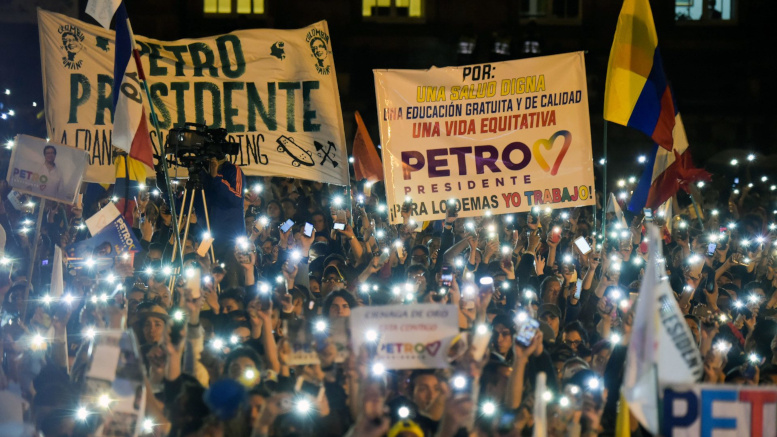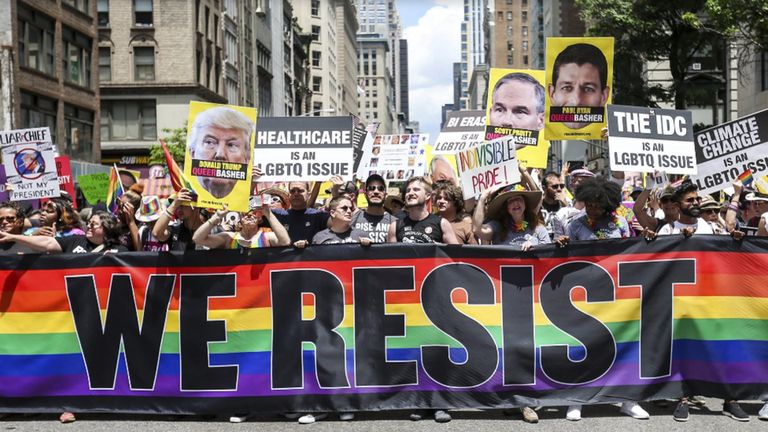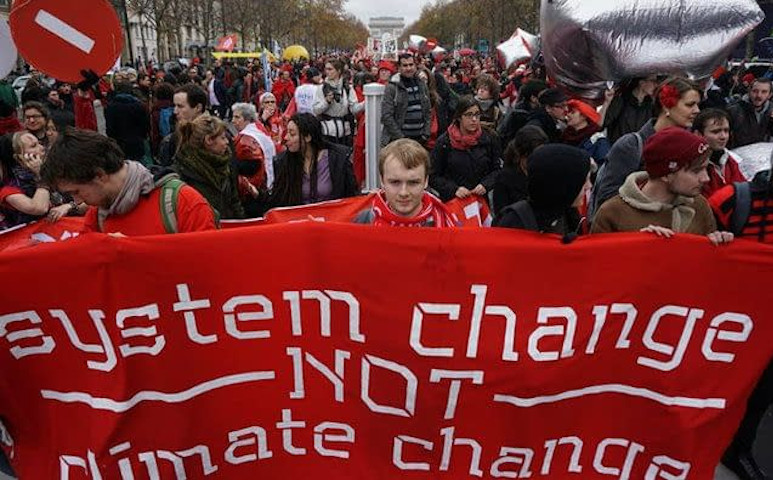David Quintana is an ISA sympathiser in Colombia.
The working class and oppressed must stay mobilised for future struggles!
As the world enters a new phase after the definitive failure of neoliberalism, Colombia will present a new face on May 29. The voting for the first presidential round, after a four-year term plagued by a continuous harvest of failures by the Uribist government of Iván Duque, will test the mass processes that have been going on for two years, especially the popular rebellion of 2021 that shook the rotten regime to its foundations. A sweeping victory is expected for the progressive Gustavo Petro, a former member of the M-19 guerrillas and a prominent left-wing politician who is raising the flags of “change” and “transformation” after an almost unchallenged domination of the ruling class since the time of our “Independence.”
We must recognise the historic character of these elections in a country that has long been a bastion of US imperialism. Petro and Francia Marquez’s (vice-president candidate) hugely popular campaign has drawn hundreds of thousands to rallies in every corner of the country, and gained the support of millions more, an expression of the deep radicalisation of all those who want to end the inequality, poverty, hunger and oppression rampant in Colombian society — the very issues that brought millions onto the streets in 2019 and 2021 and remain unresolved.
It should be noted that Petro is neither a perfect nor an adequate political expression of the revolutionary potential of this great movement. As an electoral figure, he seeks to fly the flags of social-democratic “liberalism” oriented towards the “renovation of Colombia’s backward landlordism and capitalism.” His program, in the end, does not involve an attempt to overcome the very system that is leading us to extinction (the climate destruction that Petro himself denounces), but rather a “modernisation” of the country’s productive forces through local entrepreneurship.
By pursuing policies that favour strong state intervention and economic protectionism, Petro seeks to recreate the supposed successes of the “Asian Tigers”. But this does not imply a break with those financial institutions that still advocate a “universal” path towards austerity and the free market. Recently, in an interview with El Tiempo, he acknowledged having met with the International Monetary Fund to “calm” foreign investment. However, it should be clear that Colombian society cannot be brought forward on the basis of capitalism, however “backward” it may be. The economic elites are completely tied to imperialism, and both benefit enormously from Colombia’s structural underdevelopment meaning many aspects of a minimally reformist program will be bitterly resisted however conciliatory they may appear.
Past experiences, both in Colombia and around the world, show us how violent the ruling classes can be when any of their obscene privileges and the system from which they derive them are threatened. And they expect this to be no exception. Images of Petro protected by 4 or 5 armoured shields, and at least half a dozen additional bodyguards on the platforms where he proclaims his speeches, are now commonplace; death threats are the order of the day.
Even those who have criticisms and doubts about Petro’s politics hope that the rise of the first left-wing president in the history of the republic will open a new step towards true democratic radicalisation, and an opening for new socialist platforms able, for the first time, to carry out their political work without having a gun at their backs. However, the policy of conciliation that Petro has sought to maintain with our oppressors does not offer us real stability. We cannot be satisfied with progressive gradualism, nor sustain the illusion that the threat of the far-right and paramilitary violence will disappear with an electoral victory of the Historical Pact.
The only way to achieve this is to keep the oppressed masses mobilised in the streets, in the neighbourhoods, in the workplaces to defeat the right wing and its reactionary agenda. This would require going beyond Petro’s limited program and timid strategy, arming ourselves with a socialist program that aims to break with capitalism and imperialism. Our struggles — those of students, feminists, anti-racist activists, Indigenous people, and especially, the working class — must be linked together and sustained.
Francia Márquez Mina, a social and environmental leader from Cauca, a poor black woman who has survived attempts on her life for her activism, appears as a hope for the left of Gustavo Petro, and represents the outcry of the “invisible” masses for more fundamental change. Moreover, Marquez’s high vote in the Historic Pact primaries demonstrated that there is a significant layer of activists that yearn for a more radical and militant politics than those of Petro.
If Petro does not fall to the bullets of terror as a candidate, there are inherent risks to his presidency: let us not forget history. Already an army general has decided to politically intervene against him and his project, claiming the support of many others like him in the ranks of the military. Although Petro has tried to calm the worst anxieties of the capitalists by moderating his program and rhetoric, the Colombian ruling class is afraid that the social forces propelling Petro to victory will go far beyond what he himself is currently proposing. It is therefore necessary, as socialists, to rally around this promising first advance towards real and permanent victory.
Finally, we have to declare that our cause is deeply committed to mass movements, organised democratically, and oriented towards the real liberation of the working class and the oppressed in Colombia. We have already seen the explosion of revolutionary potential that the 2019 and 2021 processes achieved when they rattled the country’s conservative establishment; mobilising a previously politically inactive youth towards new rank and file organisations that even today continue to grow stronger from the growing discontent towards the establishment.
Therefore, from International Socialist Alternative, we call for a critical vote for Gustavo Petro and Francia Marquez, being aware of the need to deepen their program by raising anti-capitalist and socialist policies and mobilizing the latent power of the workers, youth and oppressed that led the General Strike of 2021.
These elections will not be the final step and it is certain that in this period of capitalist crisis there are huge class battles on the horizon. The working class and oppressed masses must remain mobilized, sharpen our tools of struggle and politically arm ourselves with an analysis and program that can guide a movement that aspires for a world free of misery, inequality and oppression where society’s resources are organised on the basis of meeting the needs of humanity and the planet, and not the profit-seeking of a parasitic capitalist elite.




